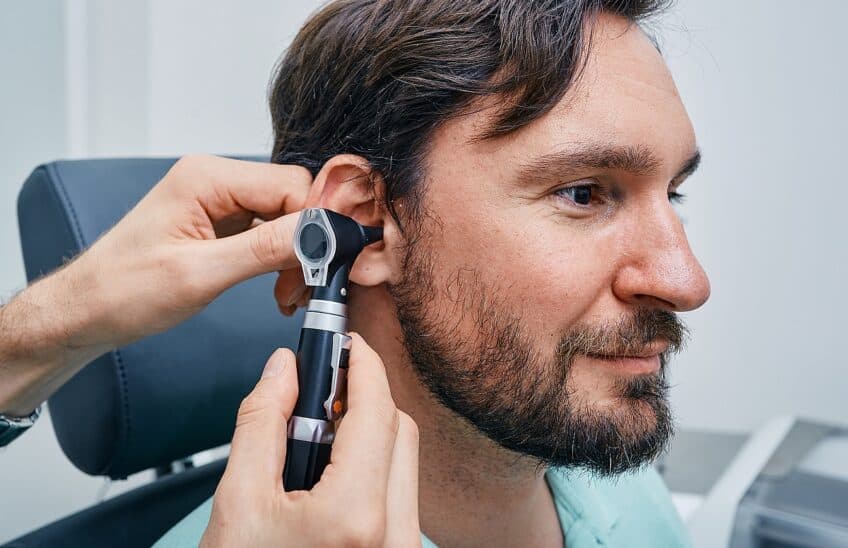Hearing loss is a major health issue that people live with today. Over 48 million people have hearing loss but it is often left untreated. In fact, only a third of people who could benefit from treatment actually receive it. With nearly 1 in 6 people having some degree of hearing loss, you may have a loved one with impaired hearing. There are useful ways you can provide support, like encouraging them to take a hearing test. A few strategies you can use to advocate for hearing loss treatment include the following:
- Research hearing loss. Before approaching having a conversation with your loved one about their hearing loss, it is helpful to learn more about what they are experiencing. We encourage you to spend some time researching hearing loss: causes, symptoms, impact of untreated hearing loss, and treatment. This expands your understanding about hearing loss and also increases your empathy. You can later share this information with your loved one to demystify hearing loss and the treatment process.
- Choose the best time and place. Talking about health issues is a sensitive topic so be mindful about when and where you have this conversation. It is important to be intentional about the environment. You want to make sure that your loved one is completely comfortable and the setting is also conducive to having an important conversation. Also, you should allocate plenty of time for all the things you need to discuss while leaving room for what they want to share. Choosing their home or your home, a space they are already familiar with, can be your best bet.
- Talk about how their hearing loss affects you. People who are experiencing hearing loss are not always aware of how their hearing loss impacts those around them. They may think they are hiding it or doing a great job at communicating despite their hearing loss. Sharing your direct experience of their hearing loss is a useful way to highlight how it has impacted you and your relationship. While doing this, be sure to use “I” rather than “you” statements which don’t make them feel attacked or like they need to be on the defensive. It is helpful to share specific examples and ways you’ve experienced their hearing loss – arguing over the volume of the TV or music, feeling ignored during a conversation, having to repeat things at a restaurant etc.
- Ask questions and listen. It is important to be understanding and part of this is asking your loved one questions and listening to what they have to say. Ask them how they experience their hearing loss and why their apprehensions are about seeking treatment. It is useful to learn why they’ve avoided seeing a hearing healthcare provider and the potential anxieties they have about it. It is common for people to feel nervous or even embarrassed about their symptoms. This allows you to respond with care in ways that can alleviate the stress about seeking treatment.
- Share the risks of untreated symptoms. Oftentimes, people don’t know the impact untreated symptoms can have on quality of life. Sharing concrete effects of untreated hearing loss highlights the importance of treatment. Major effects you can share include: strained communication, relationships, social connection as well as increased health risks. Extensive research shows that untreated symptoms can increase the risk of cognitive decline, falls, and depressive symptoms. These effects can take a toll on daily wellness and quality of life.
- Highlight the benefits of treatment. Seeking treatment can seem overwhelming or cumbersome so sharing that it is actually super accessible and painless is helpful. Also, discussing the benefits of treatment is a great way to encourage a hearing test. Treatment offers life changing benefits including: strengthening communication, improving relationships, enriching social engagement, and improving overall health. Treatment boosts brain health as well as increase spatial awareness and safety.
- Get your hearing tested too. Another useful strategy you can use is to get your hearing tested too. This provides helpful support and eases the hardest part which is often scheduling and attending the appointment.
Your support goes a long way. Encouraging a hearing test helps your loved one prioritize their hearing health and wellness. Contact us today to learn more about hearing loss and to schedule an appointment for a hearing consultation.


